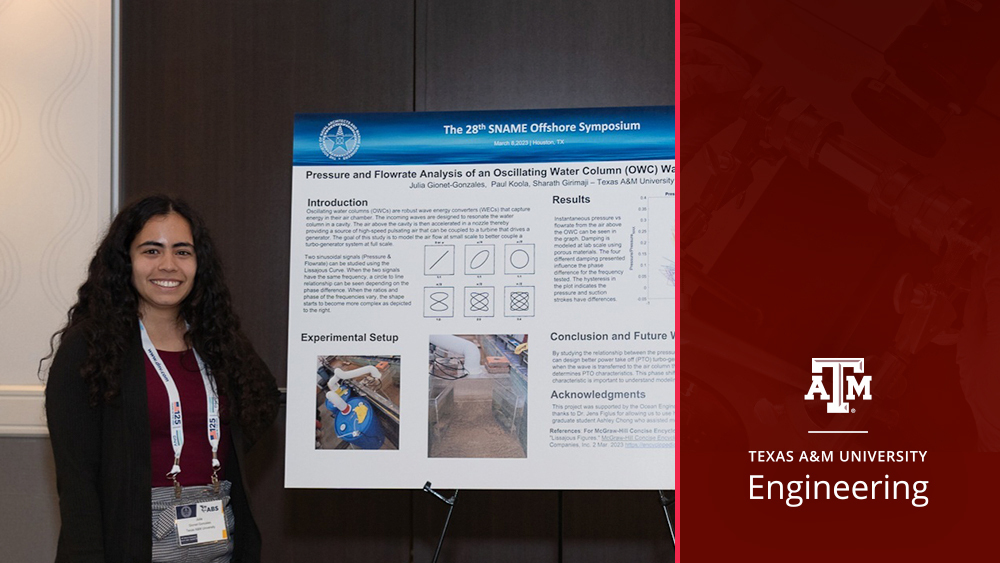
Julia Gionet-Gonzales, a doctoral student in the Department of Ocean Engineering at Texas A&M University at Galveston, received a fellowship from the National Consortium for Graduate Degrees for Minorities in Engineering and Science (GEM). As part of the fellowship, Gionet-Gonzales will intern with the Department of Energy’s National Renewable Energy Laboratory (NREL).
The GEM fellowship will provide Gionet-Gonzales with funding for her tuition and living expenses, along with the opportunity to spend her summers in Colorado interning at NREL. During her internship, she will continue her research on the use of ocean waves to generate electricity.
“I’m excited to return to NREL this summer,” Gionet-Gonzales said. “I interned with them last summer, and it was the first time I met people with similar goals and mindsets. I had a blast, got to escape the Texas summer heat and can’t wait to go back every year.”
Gionet-Gonzales’ goal is to use her research to meet the world’s electricity demand through clean energy resources. While tidal and wave energy is largely an untapped resource, Gionet-Gonzales hopes to perfect a system that will allow humanity to generate electricity using wave energy.
Tidal variations and waves can be used to extract energy in different ways. Since the majority of the earth is covered by the ocean, it makes sense to utilize it. The project I’m currently working on involves an oscillating water column.
As a part of her doctoral program, Gionet-Gonzales is working on developing a scaled model of an oscillating water column that can be used to run experiments. Oscillating water columns use the movement of waves and air to move a turbine and generate electricity. Creating a scaled model allows researchers to conduct trials without the large expense of building a full-sized column.
“My focus with this research is on air compressibility,” Gionet-Gonzales said. “Current modeling assumes air does not compress, but this has been proven to be untrue. So, I am looking into improving the viability of the model while utilizing air compressibility laws.”
For this research, Gionet-Gonzales is working with two faculty members in the ocean engineering department, Dr. Paul Mario Koola, professor of practice, and Dr. Sharath Girimaji, department head and Wofford Cain Chair II. Upon graduation, Gionet-Gonzales hopes to continue her research in renewable energy.
“I would like to go into industry and then become a professor,” she said. “Developing a way to generate clean electricity is vital to our future.”